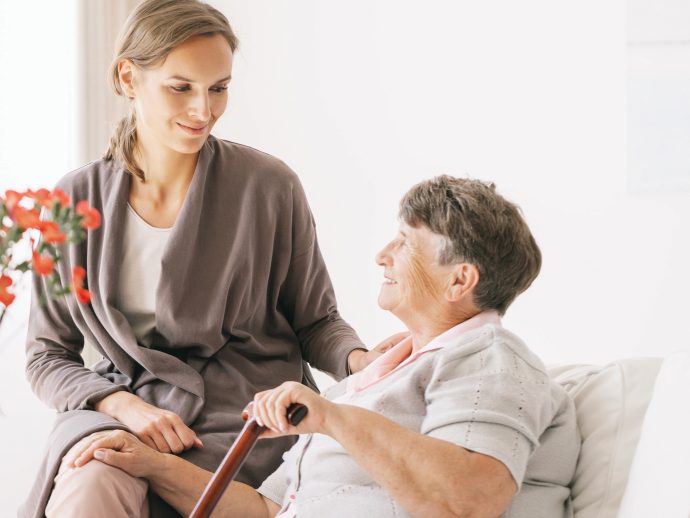
Without adequate support, caregivers can experience burnout or compassion fatigue—but it doesn’t have to be that way.
As its name implies, caregiver burden results from the demands on the care provider, up to and including burnout. Burnout refers to a state of emotional, mental, and physical exhaustion and may lead to anxiety, depression, fatigue, and stress.
On the positive end of the spectrum, caregiving is associated with improved well-being, personal growth, a sense of fulfillment, and feeling good about caring for another person. Together, these positive effects of caregiving are known as compassion satisfaction.
Compassion fatigue is a holistic concept that originated in the field of nursing and includes both the negative and positive aspects of caregiving. Compassion fatigue occurs when the amount of compassion overwhelms the ability to cope or recover. Not surprisingly, compassion fatigue occurs in informal caregivers, too.
Signs of compassion fatigue
- apathy
- fatigue
- irritability
- decreased productivity
- boredom
- emotional overwhelm
- poor judgment
- desensitization to others’ needs
Gendered expectations for caring
The cultural expectations that women take care of private matters in the home means that women feel morally obligated to assume the caregiver role in families. Despite increasing numbers of men who are caregivers, statistics show that women still provide the majority of care in homes.
Women are also more likely to provide time-sensitive personal care involving bathing, toileting, dressing, and medical treatments, while men are more likely to perform chores such as yard work that can be put off until a convenient time.
In other words, immediate demands of those who receive care must be incorporated into a potentially full roster of activities for women, including employment. Caregiving responsibilities can lead to lost workdays, forgoing job opportunities, and reduced work hours that may affect employee health benefits.
As a result, well-being can suffer for women providing care. Research showed that women reported higher levels of burnout and secondary traumatic stress than do men. (Secondary traumatic stress refers to stress that occurs from witnessing someone else’s trauma.) Particularly in the emotional and time-limited end-of-life period, women often neglect their own needs to take care of the well-being of a dying friend or relative.
Care for yourself
Caregiving can quickly become all-consuming. From the outset, it’s important to have strategies in place to support your own well-being. (You won’t be able to care for anyone if you collapse from exhaustion because you don’t sleep, or you get sick because you neglected your diet.)
Reach out for help
If you are in a caregiving role, remember that you don’t have to do it all, all by yourself. Nor do you have to do it all perfectly.
- Learn how to delegate and to accept your personal limits.
- Practise saying no to requests that you know someone else can easily handle.
- Call on family, friends, and spiritual or religious groups who might be interested in helping.
- Reach out to specific disability, illness, palliative care organizations, or respite services for support.
Written by Lisa Petty, PhD


